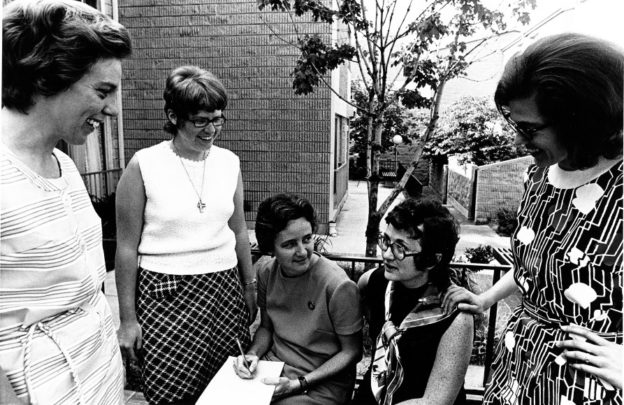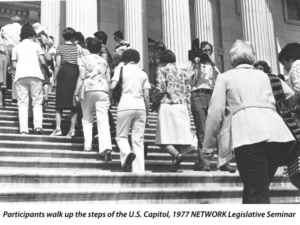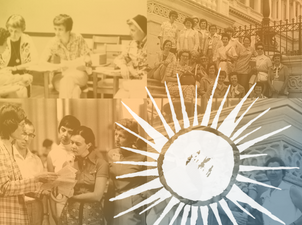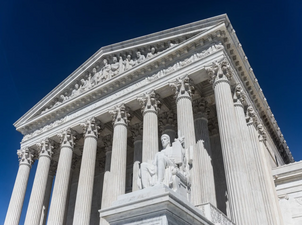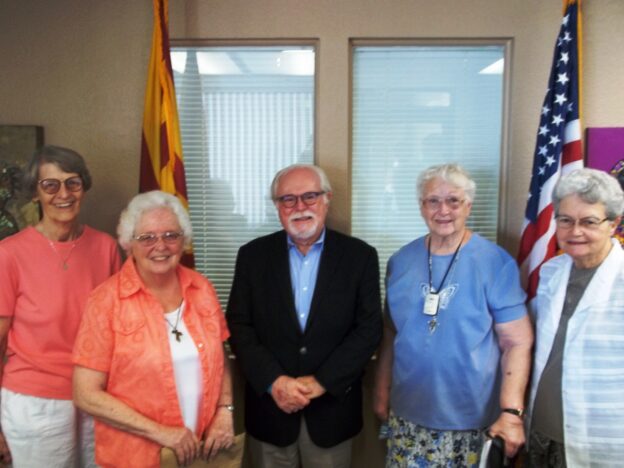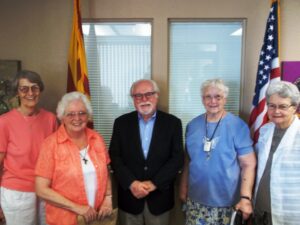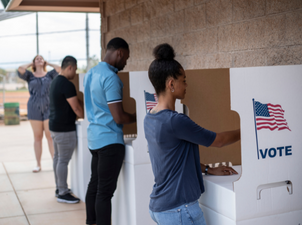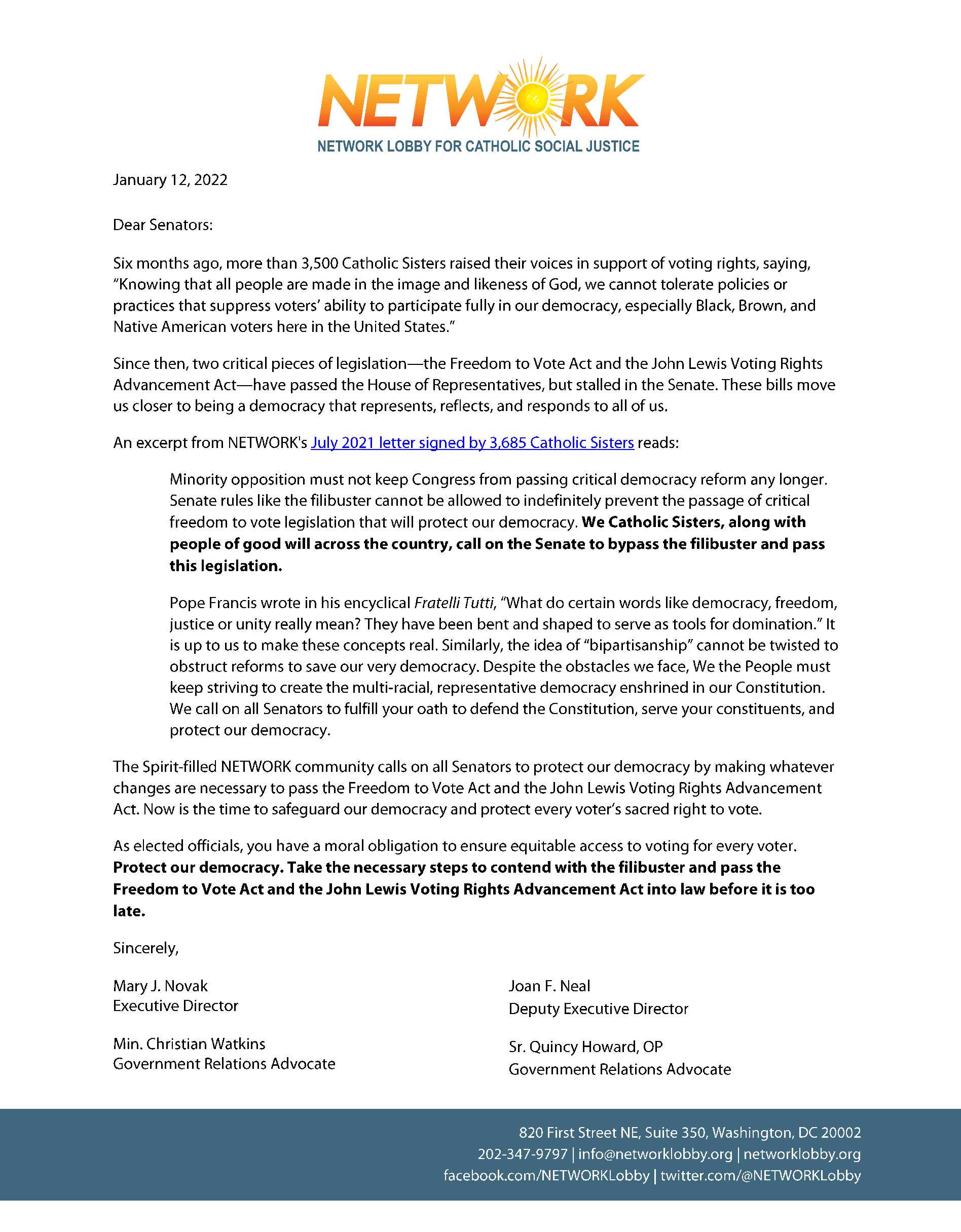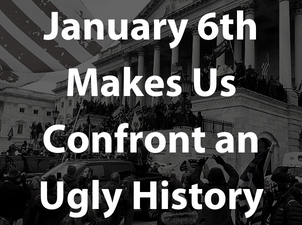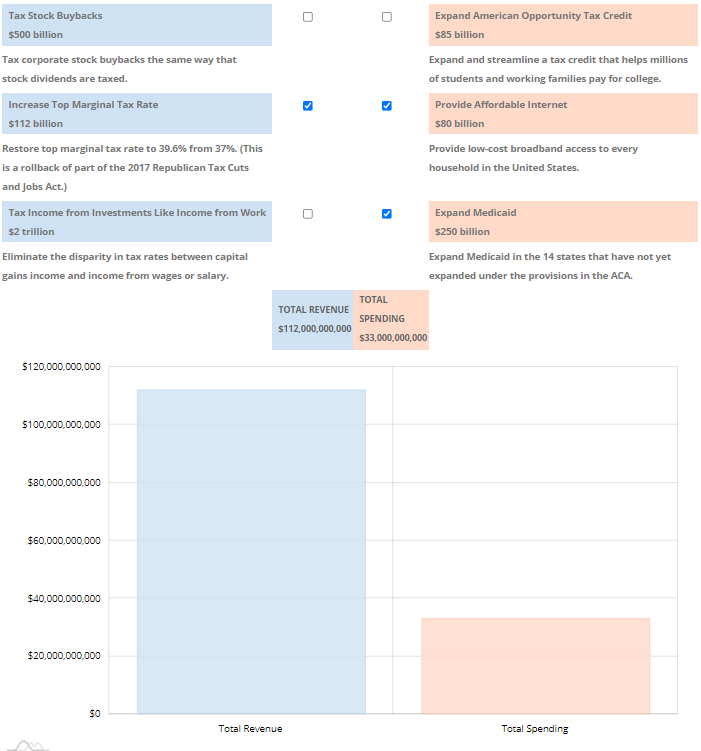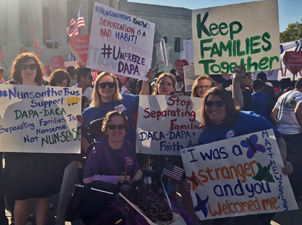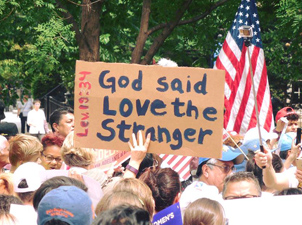
Action of the Spirit
Sr. Mara Rutten, RSM
May 2, 2022
Sisters Answered the Call of the Times in Founding NETWORK
When journalist Ruth Dean of the Washington Star News visited the offices of NETWORK in 1974, she was surprised to find the staff of Catholic Sisters —“not in uniform” — busy planning their third legislative seminar focusing on taxes, criminal justice, and campaign reform. After two years, the sisters’ engagement in “political ministry” was still newsworthy.
It had been less than It had been less than 10 years since American sisters had,in response to the Second Vatican Council’s call for renewal, shed their distinctive dress and entered into new ministries. This brought them into close contact with the social sins of racism, sexism, and indifference, and showed them the need for systemic change.
The founding of NETWORK sought to address these systemic injustices directly in a political ministry of lobbying at the federal level. Its spark stemmed directly from the movements flowing through the church in the council’s wake, and the sisters who participated in the founding still recall the power of that moment.
Hearing the call
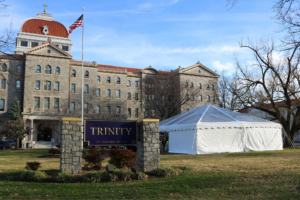
Trinity Washington University, the site of the December 1971 meeting, when NETWORK was founded, and many Legislative Seminars in subsequent years.
When Pope Paul VI issued “A Call to Action” and the Synod of Bishops released “Justice in the World” in 1971, stating that “politics are a demanding manner … of living the Christian commitment to the service of others,” and that “action on behalf of justice” was “a constituitive dimension of preaching the Gospel,” the sisters heard it as their own call to action.
Activist Sr. Marjorie Tuite, OP, who trained organizers at the National Urban Training Center in Chicago, seized the moment. Tuite, who believed that there was “no way to do political work unless you are networked to others doing the same,” raised the possibility of organizing women religious at a Catholic Committee on Urban Ministry (CCUM) meeting in October of that year.
She discussed the issue with Sr. Mary Reilly, RSM, Sr. Claire Dugan, SSJ, and Msgr. Geno Baroni. Baroni, who served in the U.S. Catholic Conference’s urban task force, had tried to organize a lobby of priests but had gotten nowhere. They decided to sponsor a three-day workshop at Trinity College in Washington, D.C. on the subject that December.
The invitation went out to known activist sisters, but news of the meeting spread, and most of the attendees found their way through word of mouth. Sr. Carol Coston, OP, who would go on to be NETWORK’s first director, did not receive an invitation but tagged along from Florida with Sr. Kathy Gannon, OP.
Student Sr. Elizabeth Morancy, RSM, went because she was told that “you’d like this meeting. They’re going to talk about ‘Call to Action’.”
Sr. Teresina Grasso, SP, and Sr. Peggy Neal lucked into invitations when Tuite stopped by each of their ministries. “She cast a wide net, and I got caught in the net,” Neal remembered. “So I put out the word that I had a car and a few others joined me,” though “no one with good sense leaves Kansas in a car in December.”
Sr. Cartona Phelan, the provincial of the Clinton Franciscans, gave Sr. Marilyn Huegerich permission because she thought it would be a good idea for the young sister to see
Washington, then decided to join her, making her one of four provincials attending the meeting. “Everyone thought she brought me along,” Huegerich recounted. “But she came with me!”
Eventually 47 sisters from 21 states arrived at Trinity.Among them were social workers, teachers, students, congregational leaders, and advocates for civil rights, women’s rights, and anti-poverty programs. For some of the younger sisters, it was their first exposure to the work.
Sr. Angela Fitzpatrick, OSU, was “in awe. I was only 25 years old and not too involved yet, but I was aware that these women were very serious about what they were about.” Huegerich concurred. “I was so impressed with the women, how competent and diverse their experiences. My eyes were opened, being from Iowa.”
Getting organized
The organizers wasted no time. Neal remembered her worldview shifting as she listened to Baroni’s emotional opening speech about the need to affect change through political involvement.“He put the human element in what I heard on the news…I got a kick in the seat,” recalled Grasso. She remembers them discussing “how many lobbied for their own issues, like big business, and there was no voice for the poor, or justice issues
in general, or working people whose voices went unheard.”
Tuite urged them on, declaring that it was “time for sisters to move from service to change…out of the convents and into the streets and the halls of Congress!”
To be effective, however, the sisters needed to know about more than just the issues; they needed to understand how to do political work. On Saturday, they went to Capitol Hill to learn about the legislative process with Senator Edward M. Kennedy’s staff, then about the “Black agenda” for the 1970s with James Gibson of the Potomac Institute.
That afternoon, a number of speakers went deeper into how to affect change in the federal government. All of this was very inspiring to the newly-initiated; Neal remembered the only woman who came to speak, Anona Teska, of the League of Women Voters, in particular.
“I wanted to join!” she said. “And I did!”
By Sunday morning, the sisters were enthusiastic about the idea of political ministry but had trouble coming to a consensus.Then Sr. Audrey Miller, CDP, made a suggestion which not only impacted the direction of the meeting, but of the organization that would be born of it. For two days, she had been sensitizing the other sisters to the fact that the conference facilitators, as well as most of the speakers, were men.
“I wonder what others feel, talking about organizing women religious,” she said, “when the only leadership thus far has come from white males.”
Jerry Ernst, who worked with Baroni and had been facilitating, handed her the chalk. “Come on up and take over,” he said.
Becoming a force
Immediately, the tone of the meeting changed, and a mood of confidence emerged. “Her intervention became a galvanizing event and helped us find our collective voice,” Coston later wrote. “Once the women took over the meeting, we said, what is it that we really want to do? It seemed clear to me that a consensus was building that we should go ahead and take the step toward a national network.”
Coston offered a motion to “form a political action network of information and communication.” The motion passed.
Miller then appointed a steering committee to meet in January to set up a network, establish contacts with existing organizations, explore possibilities of types of political action, plan a weekend and summer workshop to involve other sisters in political activity, and, in order to accomplish any of those things, identify and screen people for permanent staff.
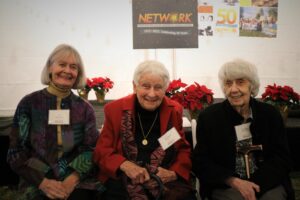
NETWORK Foundresses (left to right) Liz Morancy, Sr. Carol Coston, OP, and Sr. Mary Hayes, SSNDdeN gathered at “Spark of the Spirit,” December 2021.
“As I recall,” Coston later wrote, “the main criterion for serving on the committee, besides interest, was having the finances to get back to Washington.” Finances were no small concern for a group who held a vow of poverty in common. Phelan, who had “tagged along” with Huegerich, suggested they take up a collection, which yielded $147. Each sister then pledged to raise $50 for the cause, and were creative about it: Upon their return home, Mercy Sisters Liz Morancy and Mary Reilly worked at a local department store for the rest of the Christmas season to raise their share.
They had answered the call to action. These women who, less than a decade earlier, wore habits and ministered in congregational or diocesan ministries had come together and formed the nation’s first Catholic social justice lobby. In the years to come, the sisters of NETWORK and the clergy, brothers, and lay men and women who would join their ranks as members, interns, associates, and staff would continue to take “action on behalf of justice” by educating, organizing, and lobbying.
Sr. Angela Fitzpatrick, reflecting back on the last 50 years, gave voice to the spirit of that 1971 meeting and the work still being done today. “If we really became united,” she said, “we could be a dangerous force. We could really affect change, and change the world.”
Mara D. Rutten PhD is a candidate with the Sisters of Mercy and NETWORK’s historian. This article originally appeared in Connection, NETWORK’s quarterly magazine (Second Quarter 2022 – “Celebrating Sister-Spirit: Our 50-Year Justice Journey” *Special 50th Anniversary Edition*).







